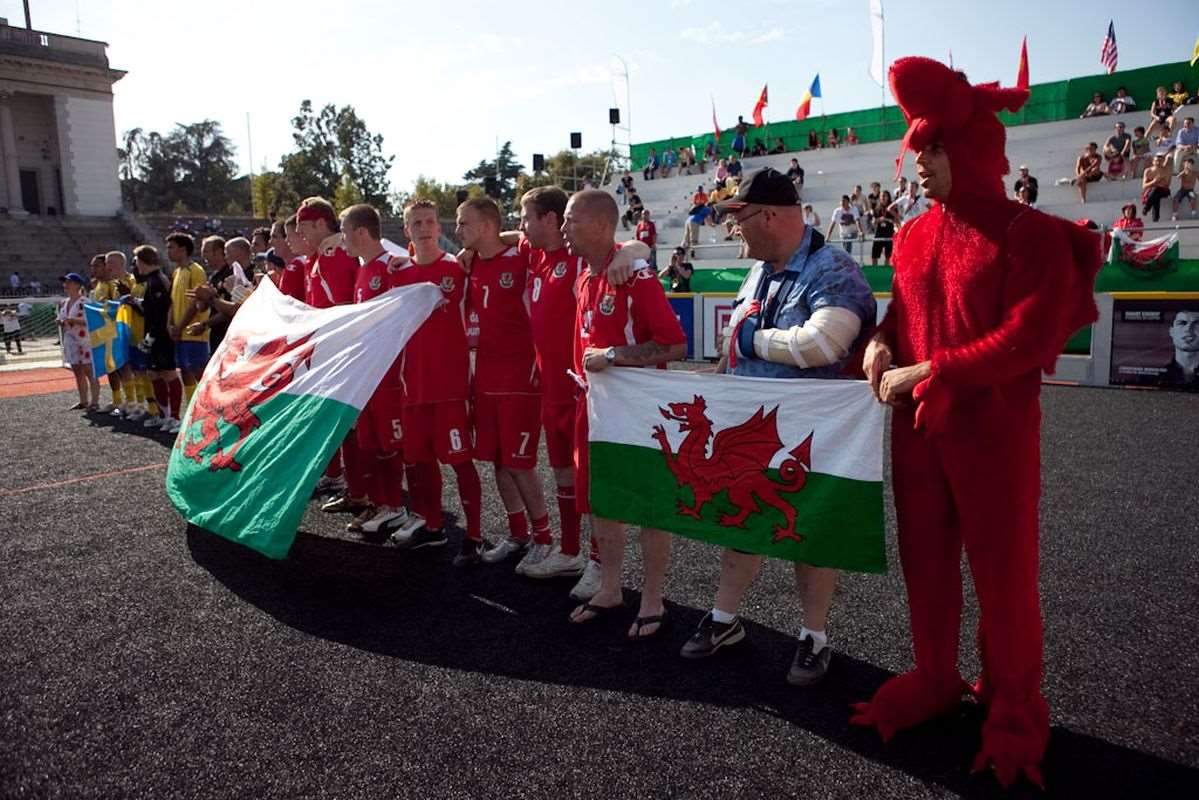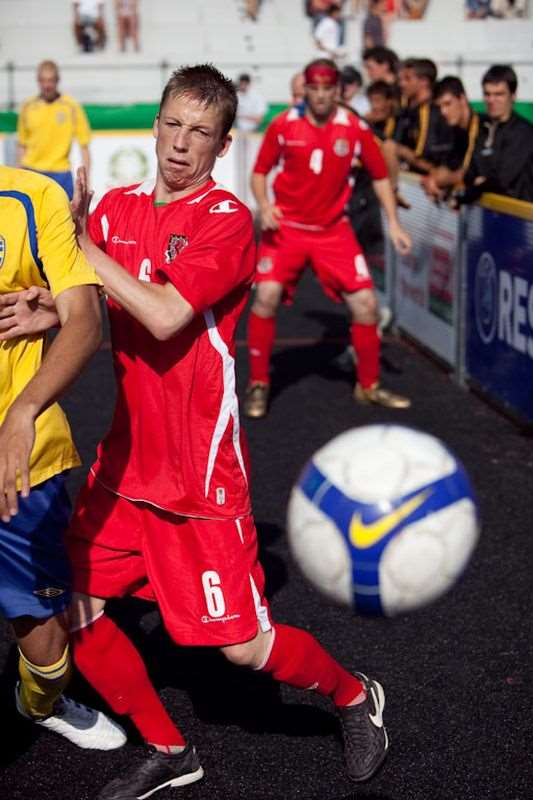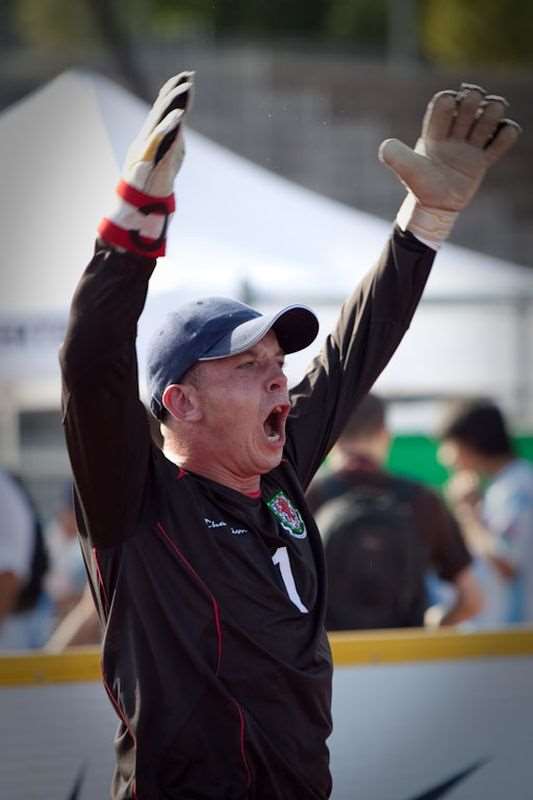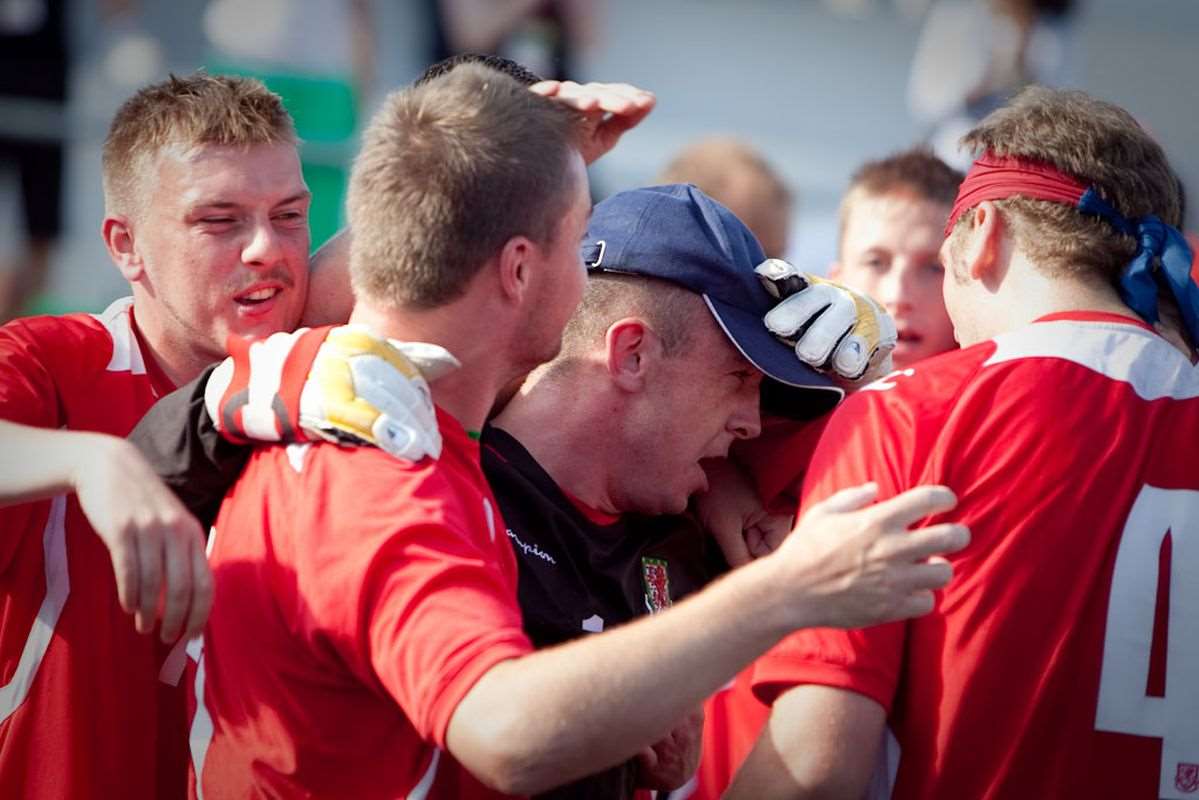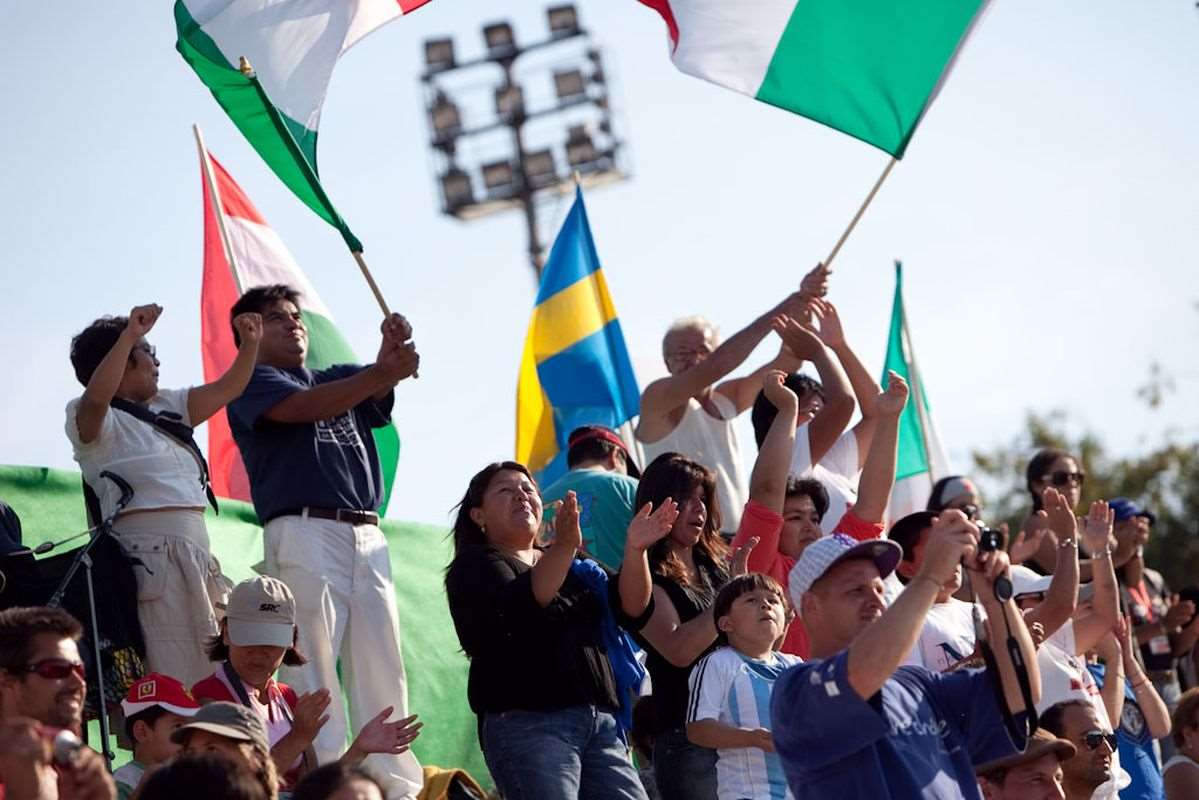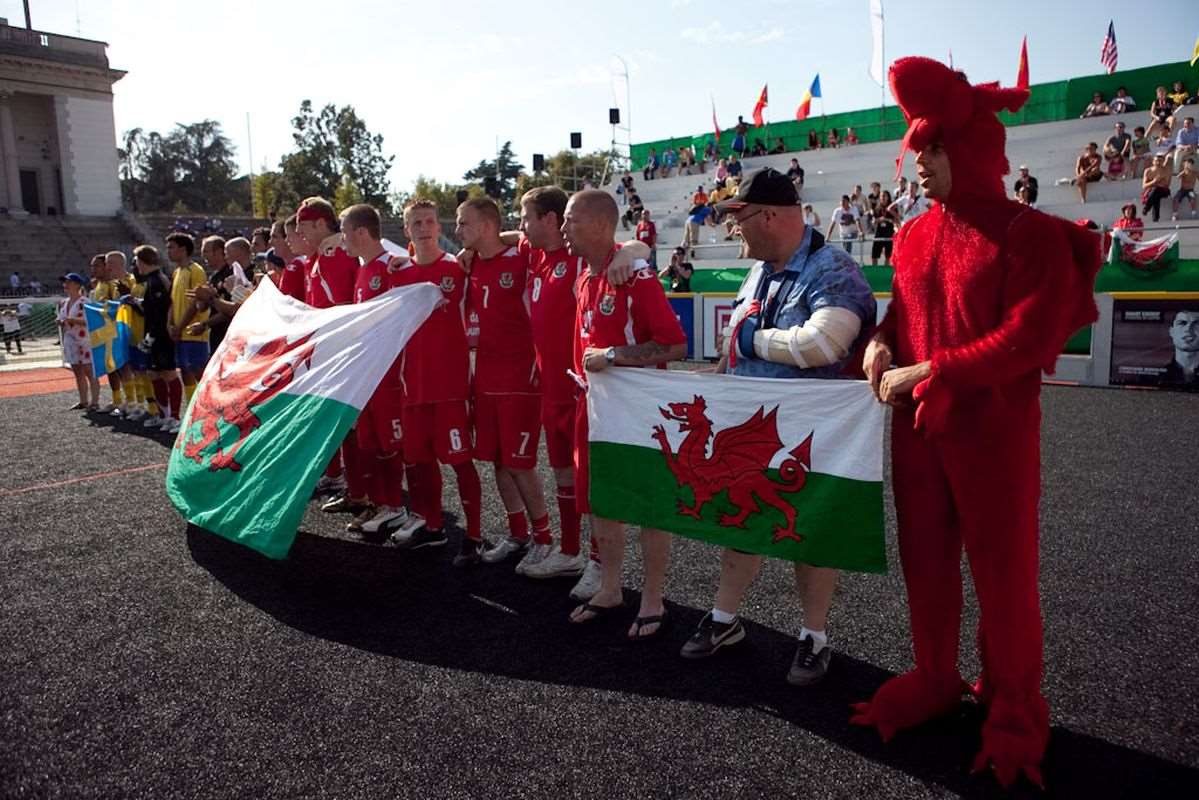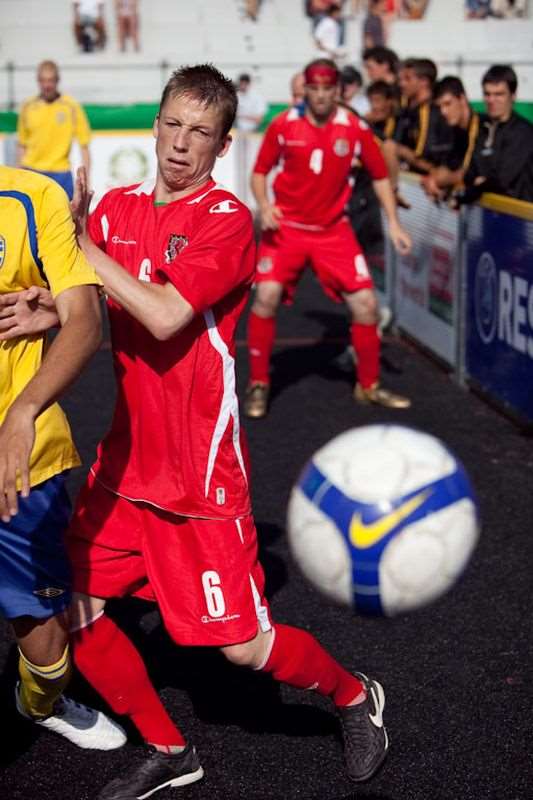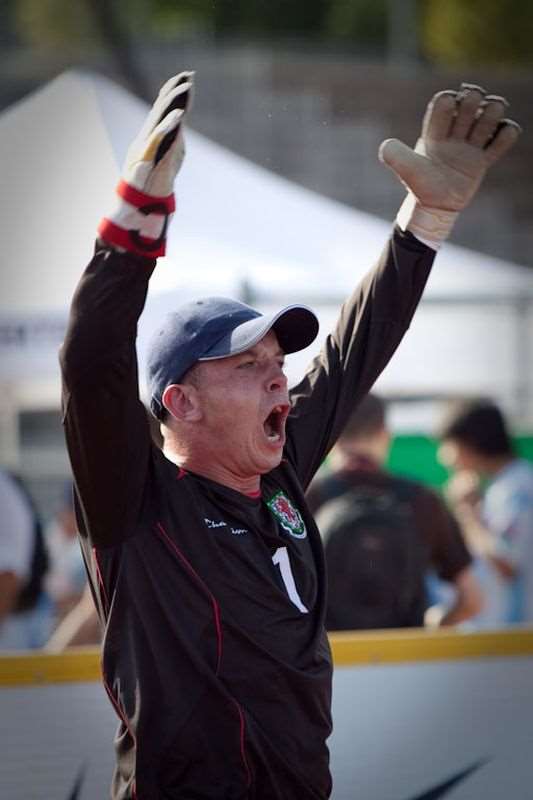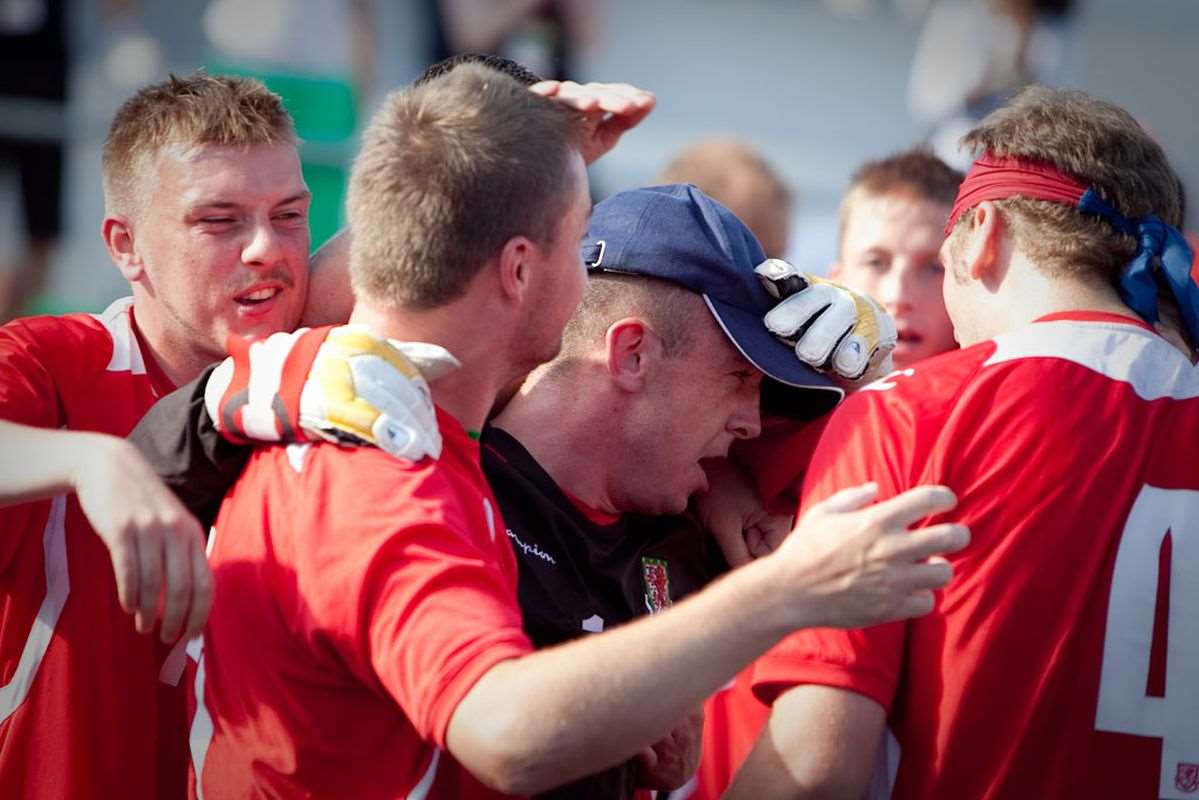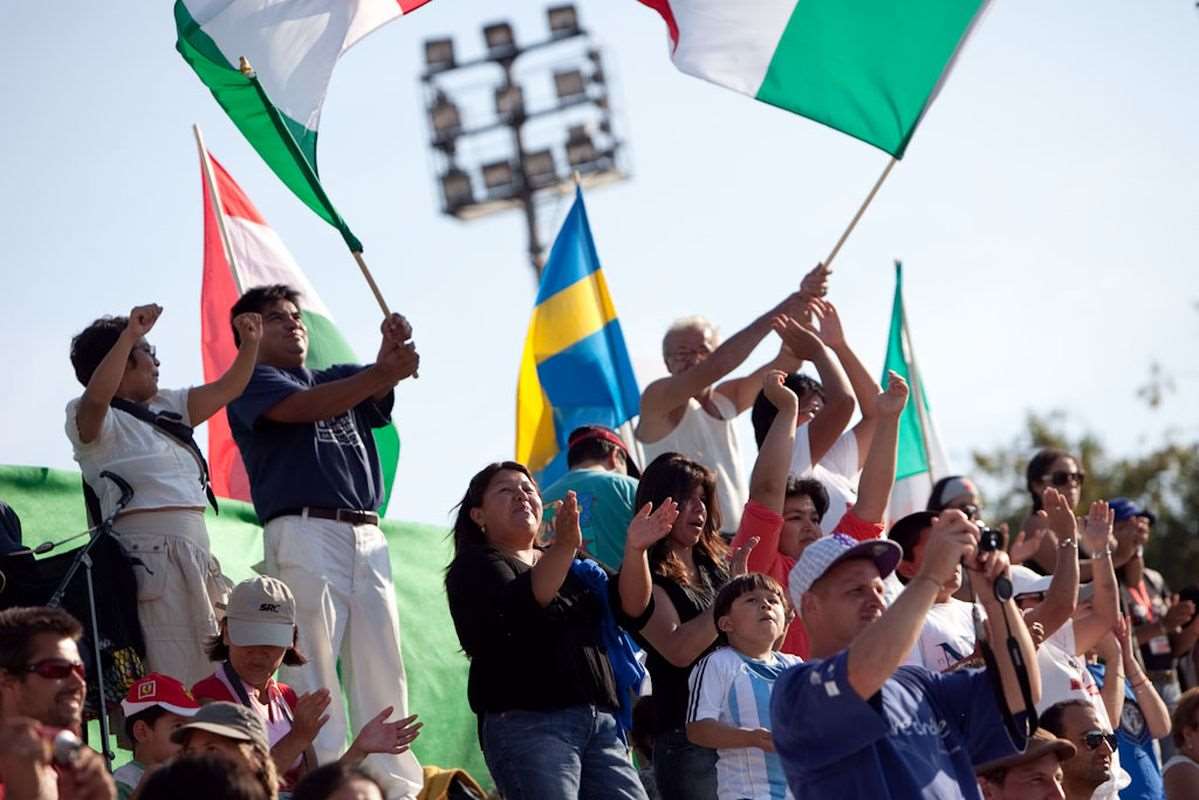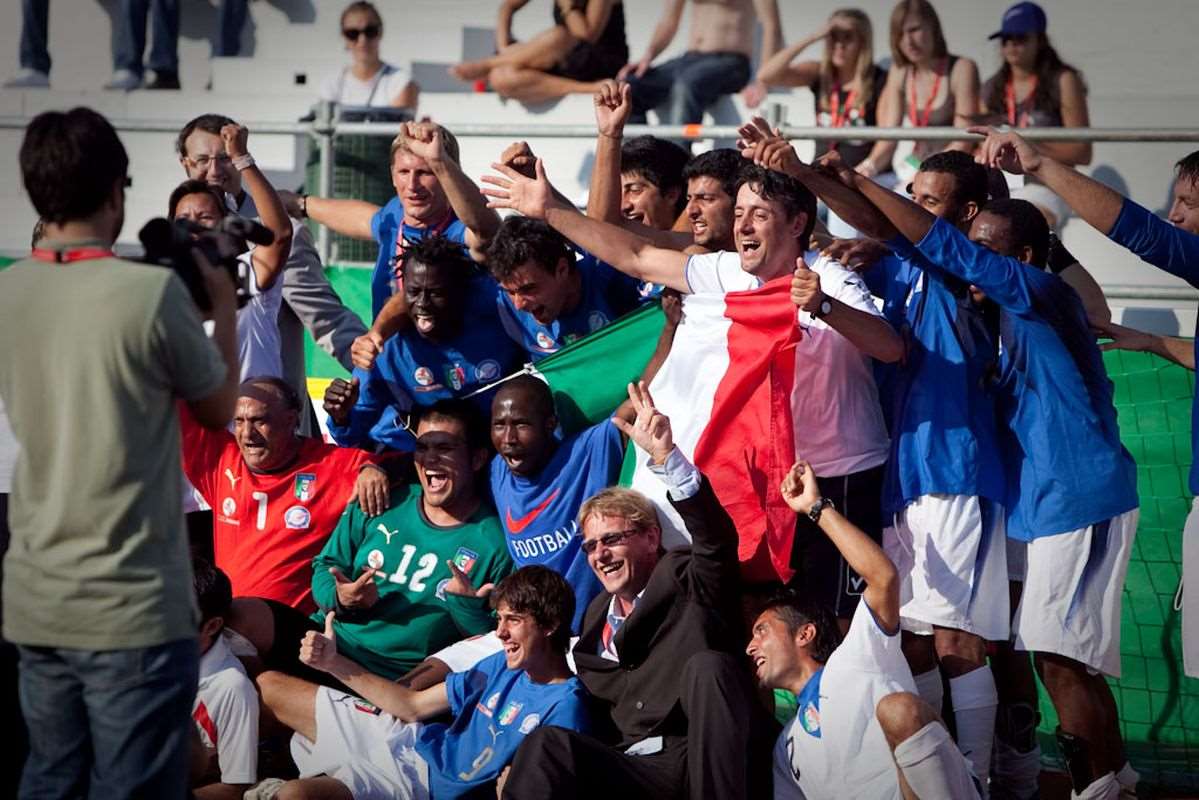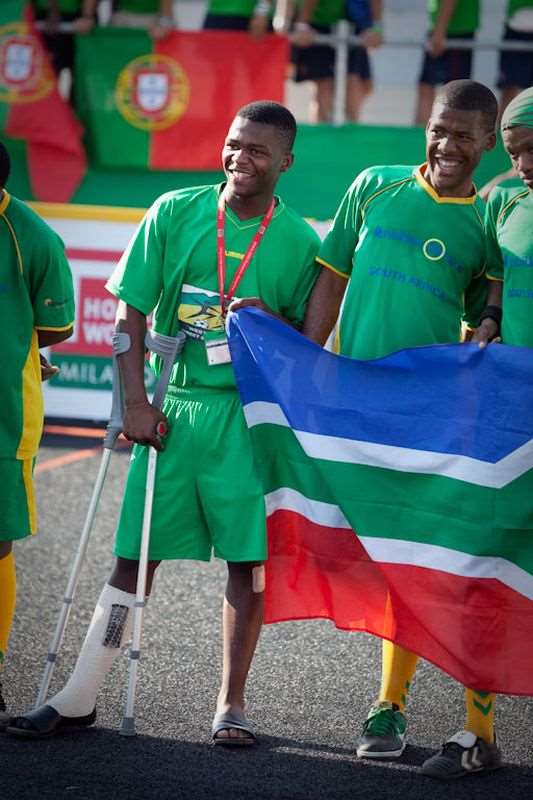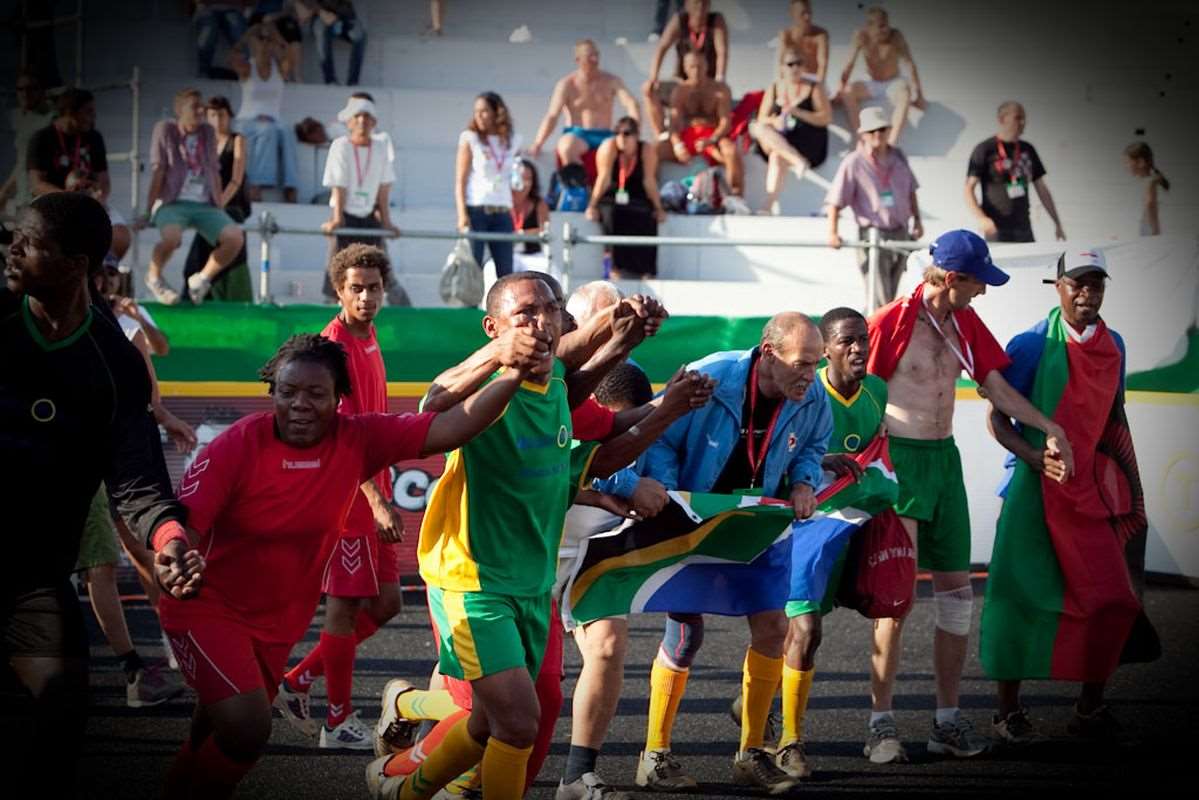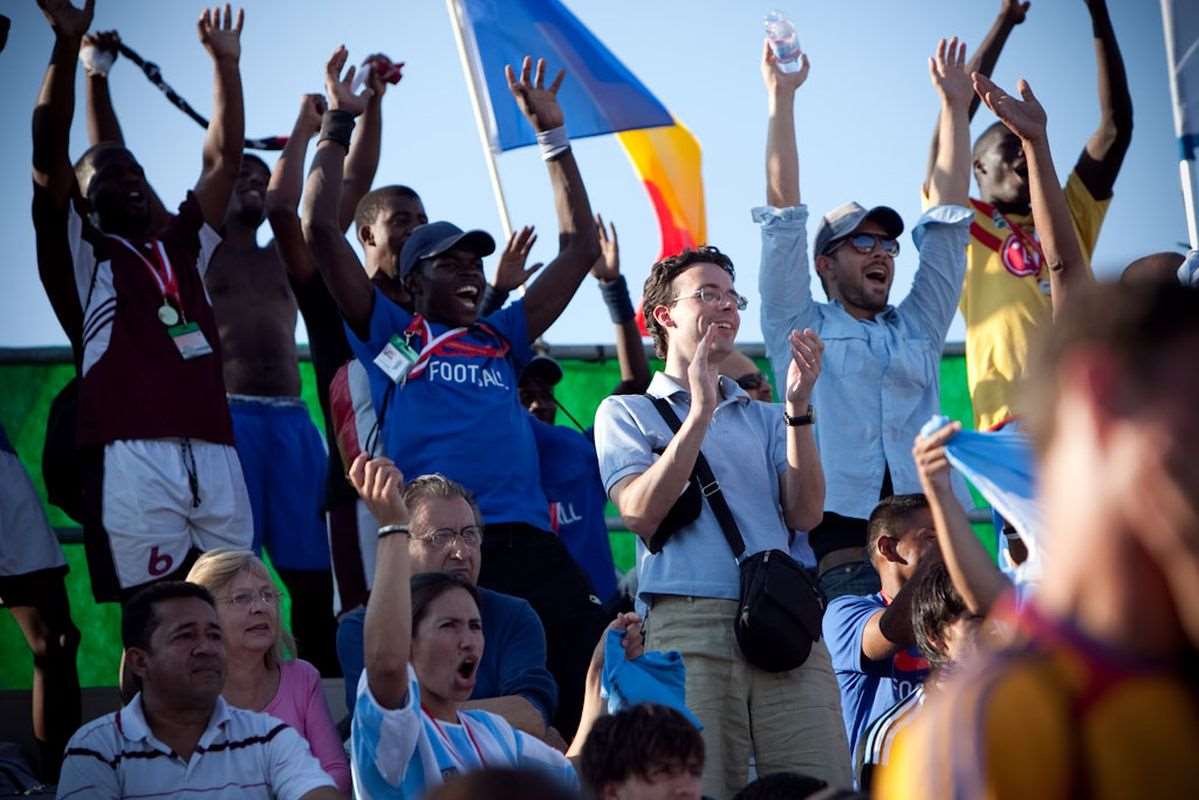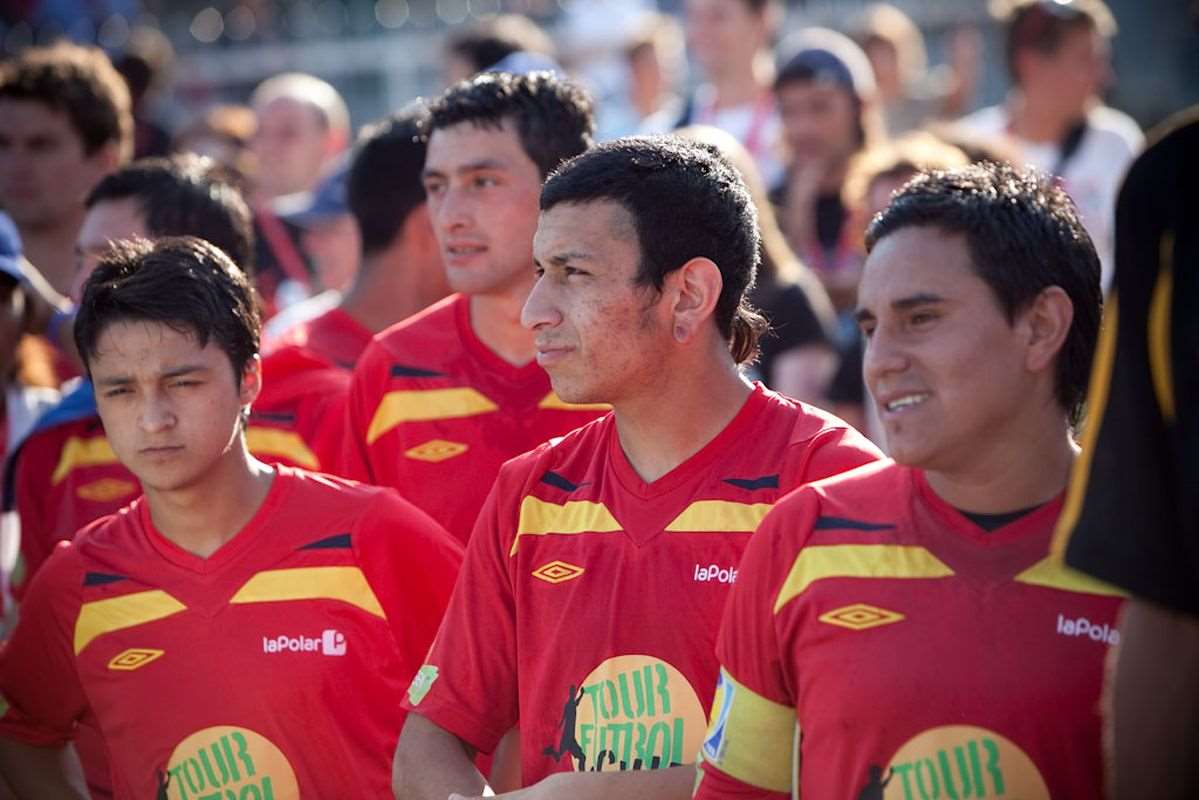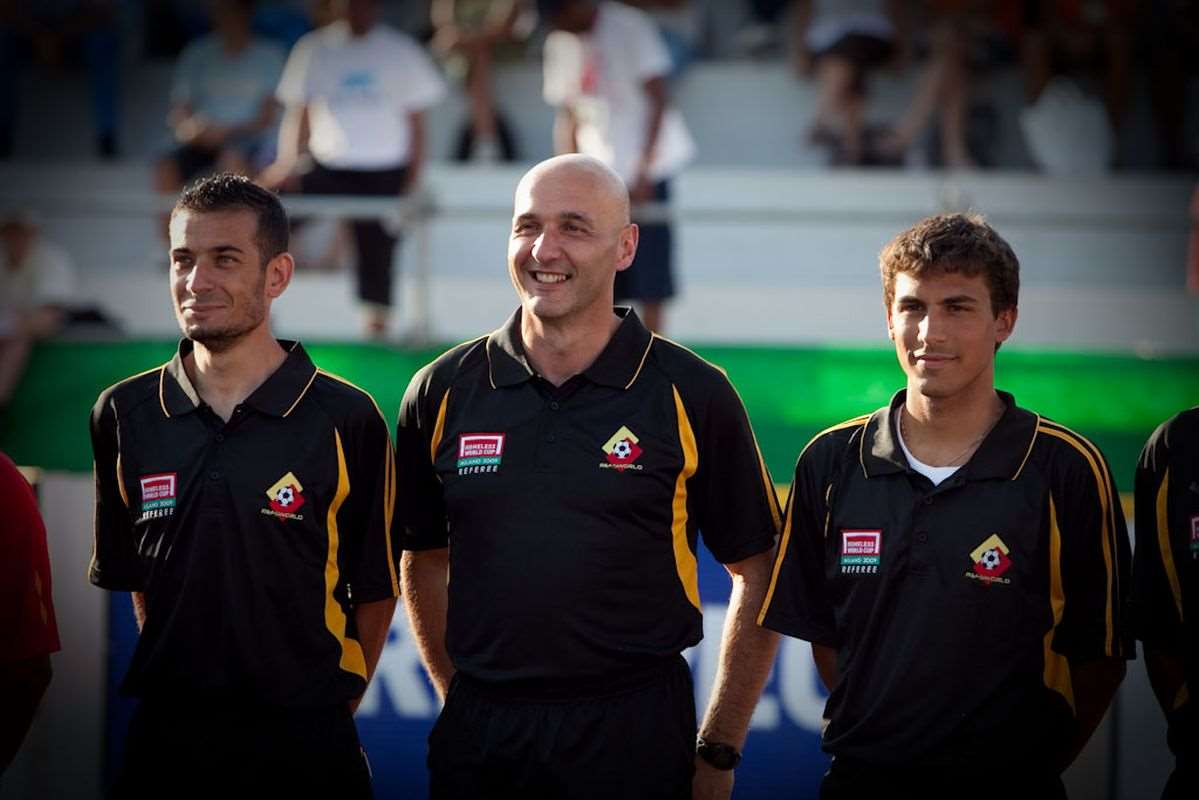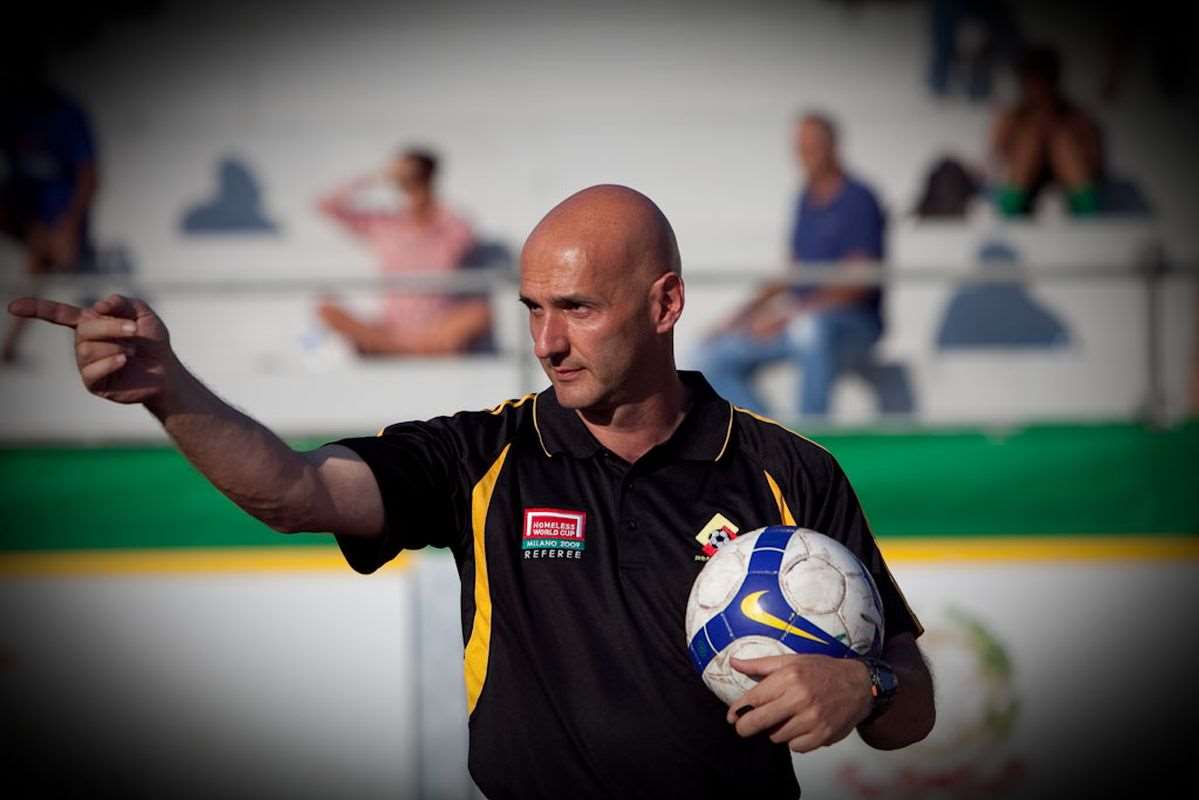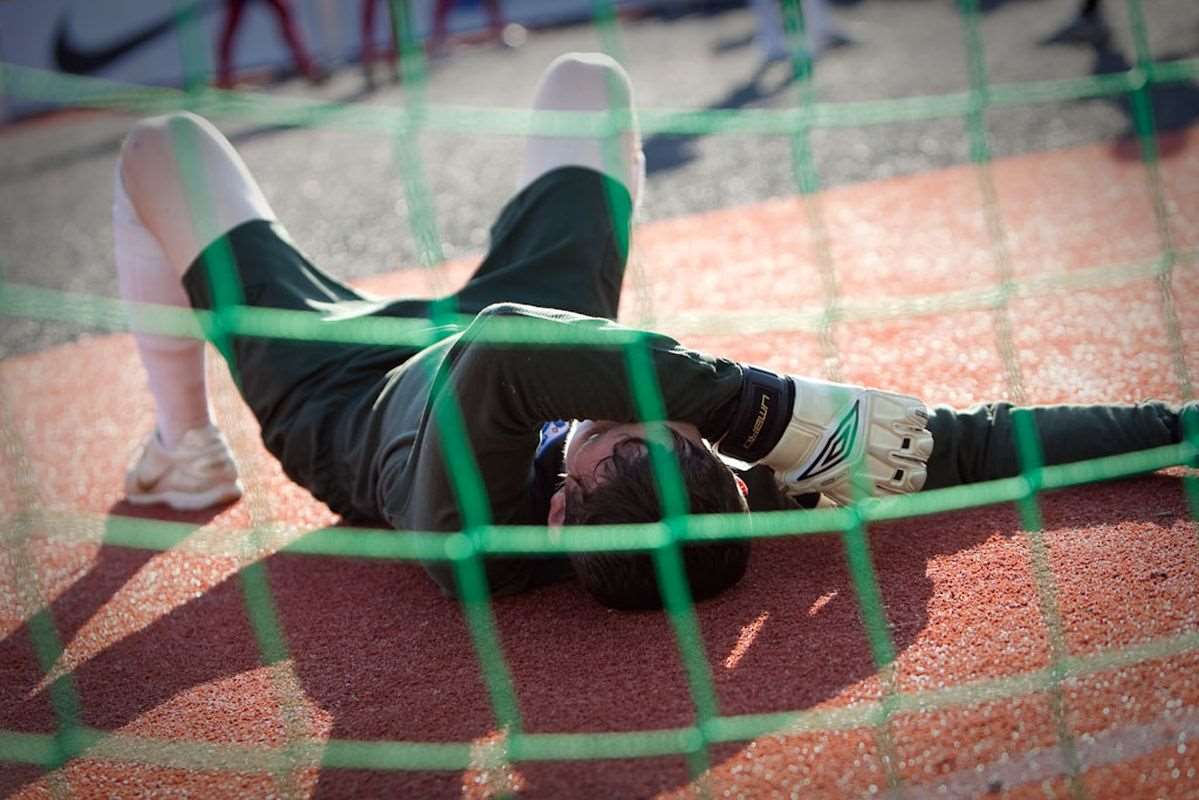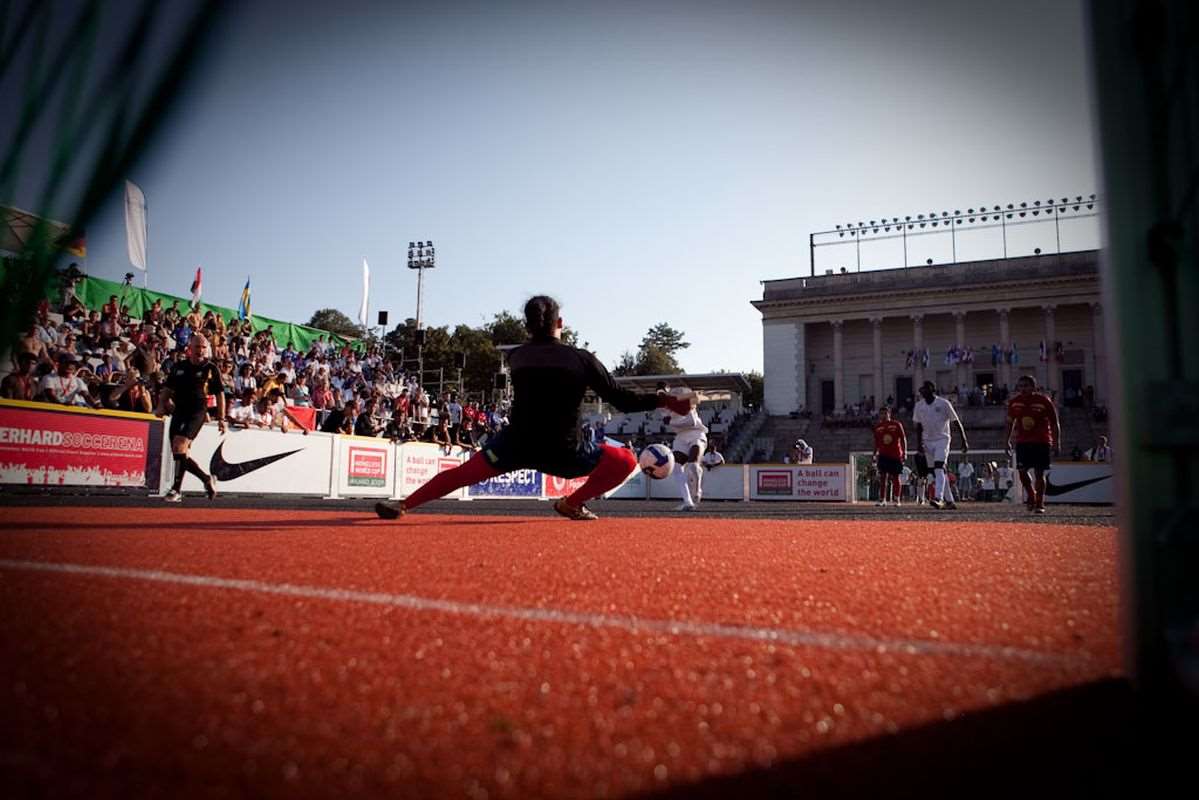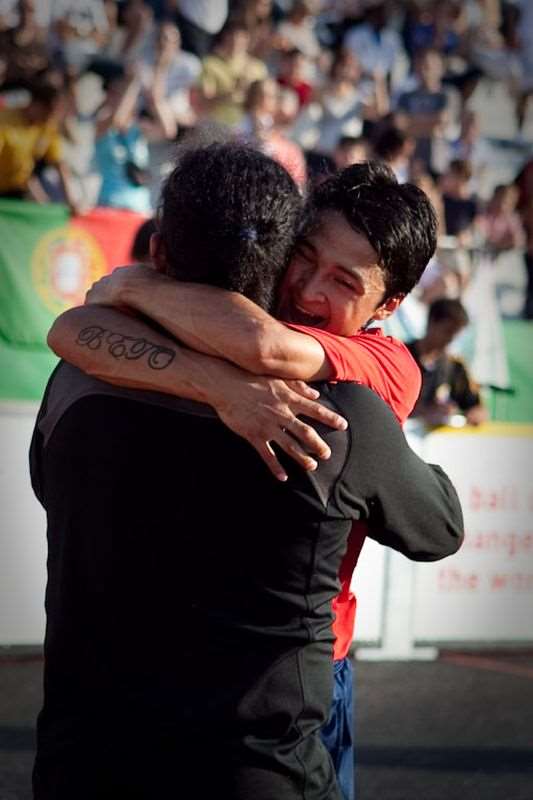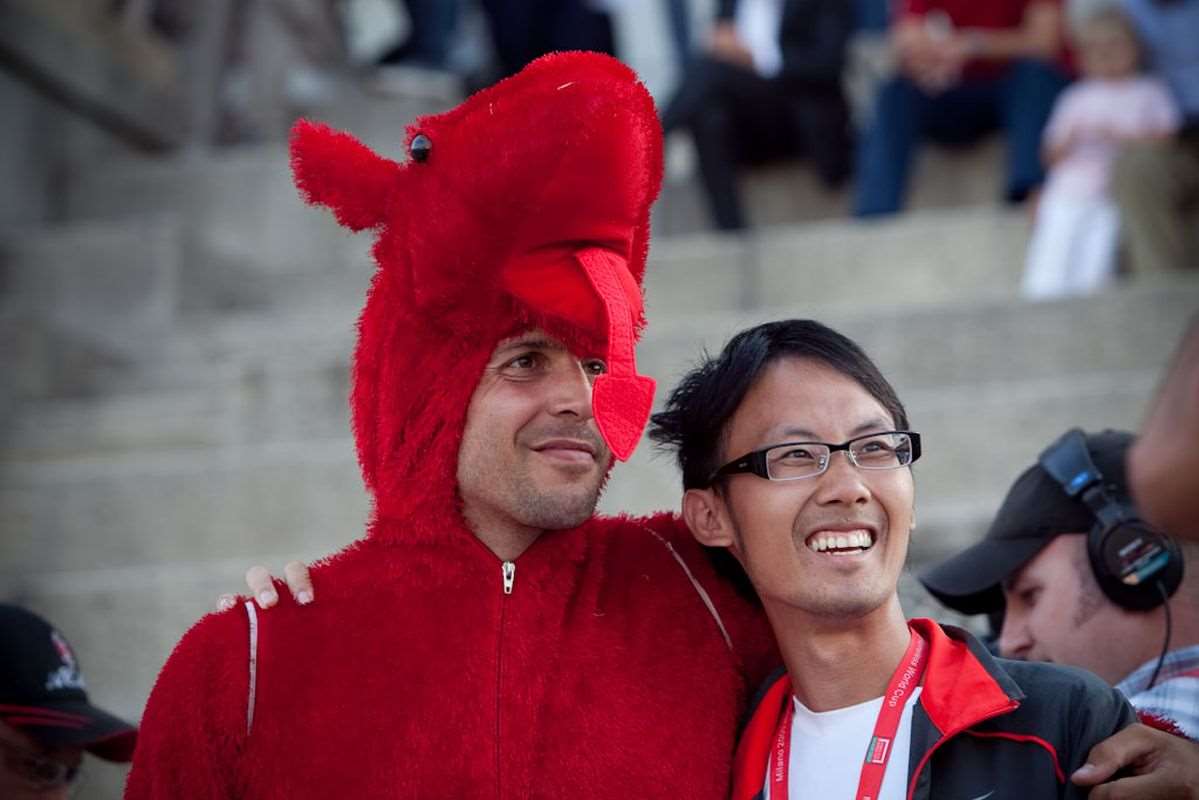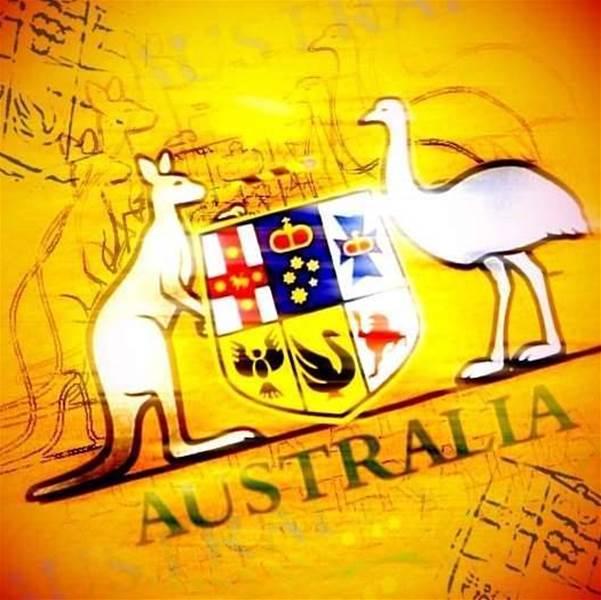UKRAINE were named 2009 Homeless World Cup champions after defeating Portugal 5-4 in a gripping goal-for-goal grand final in Milan today.
The final was the culmination of eight days of football played between 500 homeless and marginalised players from 48 nations with the maxim that one ball can change the world.
And while both teams proved incredibly skilful and passionate, with either team having been a fitting winner, it was not the primary focus of the event, nor even its highlight for this writer.
It was instead the teams, which personified the Homeless World Cup spirit of fair play which stood out and which demonstrated the Homeless World Cup's powerful use of sport to create social change.
The South African team's 32-year-old captain has been on the streets since he was five, and has experienced more adversity than most.
He didn't make it to Melbourne last year due to bureaucratic errors, yet was nothing but positive and determined to seize every available opportunity to improve his life.
The South Africans were one of the most sporting and encouraging, cheering teams on all week. They performed an impromptu and hauntingly beautiful a cappella song after their grand final win, which left more than a few people choked up.
The Welsh might have added comedic value with a red dragon mascot, with cartoon-like head, wings, and fluffy dragon feet, but they proved they had plenty of ticker too, leading rousing cheers for other teams and performing guards of honour for their opposition as they exited the court at games' end.
The Spanish-speaking Chileans, with their football played with equal doses of South American passion and flair and with their wit and warmth off the field, completely stole my heart.
They commenced each match with their customary chant, which goes along the lines of 'Chi, chi, chi, le, le, le. Chi-le, Chi-le, Chi-le!' and sang their national anthem with pride.
They downed England 6-3 with a spectacular performance in the final of the Dignitary Cup, which was played between the teams ranked 9-16 after the secondary stage, and exploded into joyous cheers, jumps, hugs, and gracious thank yous when the full-time whistle went.
The Australians too embodied the fair play spirit from start to finish. They defeated Japan 4-3 in a play off for third in the INSP Networking Trophy, which secured them 43rd in the tournament overall, but played the final as they had every other game throughout the week.
The Street Socceroos gave their only female player, Nicole Brennan, the two penalties of the match, while spectators chanted 'Hey Nicky, you're so fine. You're so fine you blow my mind. Hey Nicky.'
Ric Oldridge lifted up a Japanese player to congratulate him on scoring a stellar goal, and the Street Socceroos finished the match, their trademark rendition of Waltzing Matilda and cheers for their opposition.
George Halkias lists such moments, as well as meeting teams with similar fair play philosophies, as his highlights, while assistant coach Jarrod Gunn points to Brennan's first goal and the team's euphoric, supportive, team-spirited reaction to it.
The lowlight of the event was the game against India, where the team which had not won a match fielded, under the auspices of injury, two much more talented Italian reserve players who scored almost all 14 of the Indians' goals.
Halkias says that the match, with the unsporting, win-at-all-costs attitude was his lowlight in five years of Homeless World Cup experiences, but then also makes an incredibly valid point: the Homeless World Cup is a great experience, but it's but one week.
The focus of the Australian street soccer programs, of which there will soon be about 30, are the other 51 weeks of helping homeless and marginalised people improve their lives.
It's an understatement to say that the organisation of the Milan event leaves a little to be desired.
I was personally manhandled by overzealous and completely unnecessary security while attempting to go to the bathroom one day. I had to repeatedly prove that I was media and was, therefore, allowed to use one of the two toilets they had for hundreds of people. On day five I also had to implore the organisers to stock the bathrooms with toilet paper and soap.
They added some toilet paper, but never once in the entire eight days organised soap.
They didn't have lights in the media centre and then didn't even have a media centre at all.
And that's not even noting the fact that the event was held in an isolated location, which had no through traffic, and that the city of Milan either didn't know about or completely failed to embrace.
It's no slight on the Homeless World Cup itself, with, I'm certain, its founders as mortified as I was at how poorly Milan was organised and how badly it missed the point.
The advertising slogan goes something like, 'The weather is beautiful, wish you were here,' but the apt-and slightly more printable-version than the suggestions I've had or devised myself is perhaps, 'The weather is here, wish you were organised.'
Halkias and Gunn are more diplomatic, saying that the issues we all experienced reminded the Street Socceroos of the opportunities Australia offers.
And it's clear that the Street Socceroos are taking positives from the experience, with Scott Endersby, in particular, planning to work to give his young son every possible opportunity when he returns to Australia.
The 2010 Homeless World Cup is in Rio de Janeiro. Despite the less-than-ideal Milan experience, I can't imagine not heading over to participate, and I'm already devising travel plans and brushing up on my non-existent Portuguese.
Here's to looking forward to more fair-play football and more football changing lives live from Copacabana Beach.
Related Articles

Socceroos midfielder embraces move to England

Cardiff City snap up sought-after Socceroos starlet

